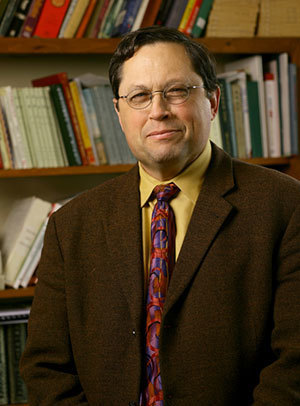 Lionel Jensen
Lionel Jensen
Pope Francis leaves on Wednesday (Aug. 13) for five days in South Korea, his first outing to Asia and “a singular event” for all of Asia’s Catholics, according to Lionel Jensen, associate professor of East Asian Languages and Cultures at the University of Notre Dame.
“This visit is a powerful symbol of the Vatican’s recognition that it is in Asia and sub-Saharan Africa that the church is growing most prominently,” says Jensen, an expert on religion in Asia. “His mere presence in Asia and the fact that it has already been announced that the pope will visit the Philippines and Bangladesh in 2015 underscores the new and significant orientation toward Asia. The effects of this first Asian visit will be noteworthy and enduring."
Jensen says that on many levels, the pope’s visit is significant for Koreans:
- Frequency — “It has been more than 25 years since Saint John Paul II visited Korea, and the most recent appearance of a pope in Asia was in 2002 when John Paul II traveled to Azerbaijan. Thus, the timing of his appearance could not be more appropriate. Just six months ago it was Pope Francis who made the Archbishop of Seoul, Andrew Yeom Soo-Jung, a cardinal — the third Korean prelate to be so named.”
- Numeracy — “South Korea is one of the many sites in Asia that has witnessed steady, even dramatic growth in the number of Catholics. There are some 6 million Catholics today in South Korea — a 70 percent increase since 2001, evidence of an expanding religious community.”
- Energy — “The excitement surrounding the approaching visit is already at a fever pitch with banners along the main traffic arteries of Seoul, Pope Francis bobble-head dolls, daily news updates, special edition postage stamps and the like. The pope will find in Korea a very healthy environment of fertile Catholic enthusiasm. This will be especially evident when he presides over the festivities for Asian Youth Day.”
- Democracy — “Historically, the close association of the Catholic Church in South Korea with the struggle for democracy and human rights will be particularly reinforced by the visit, and I suspect will be an underlying, if not explicit, theme of the pope’s Mass of peace and reconciliation on the final day of his visit. An official gesture was made to North Korea by the pope inviting a group of Catholics to attend this service. It was rejected. There are several thousand Catholics in North Korea.”
- Modernity — “The pope’s visit comes at a time in which South Korea and China both are experiencing the adverse materialistic consequences of modernization. The popularity for a growing middle class of the blandishments of capital has engendered national discussion in both countries of a crisis of values. These are concerns that Pope Francis himself has uttered, and his visit should provide impetus for the animation of such discussion.”
- Sodality — “The figure of Mary has long been a force of Catholic teaching in Asia. Many of the early Jesuit missionaries in China were members of the Sodality of the Blessed Virgin. Among the Philippines’ 75 million Catholics, Mary is a central figure of worship and especially the guiding force of the work of the Salesians among the destitute. In Korea, Mary is just as prominent. She has been the focus of a cult forged from a miraculous weeping of her statue at the church in Naju in 1985. Our Lady of the Immaculate Conception is the spiritual overseer of the Korean people, and the Cathedral Church of the Virgin Mary of the Immaculate Conception is the very seat of Cardinal Yeom. Thus, there can be no overstating the poignancy and power of Pope Francis’ celebration of mass on Aug. 15, the day of the Solemnity of the Assumption."
Contact: Lionel Jensen, 574-631-7699, ljensen@nd.edu